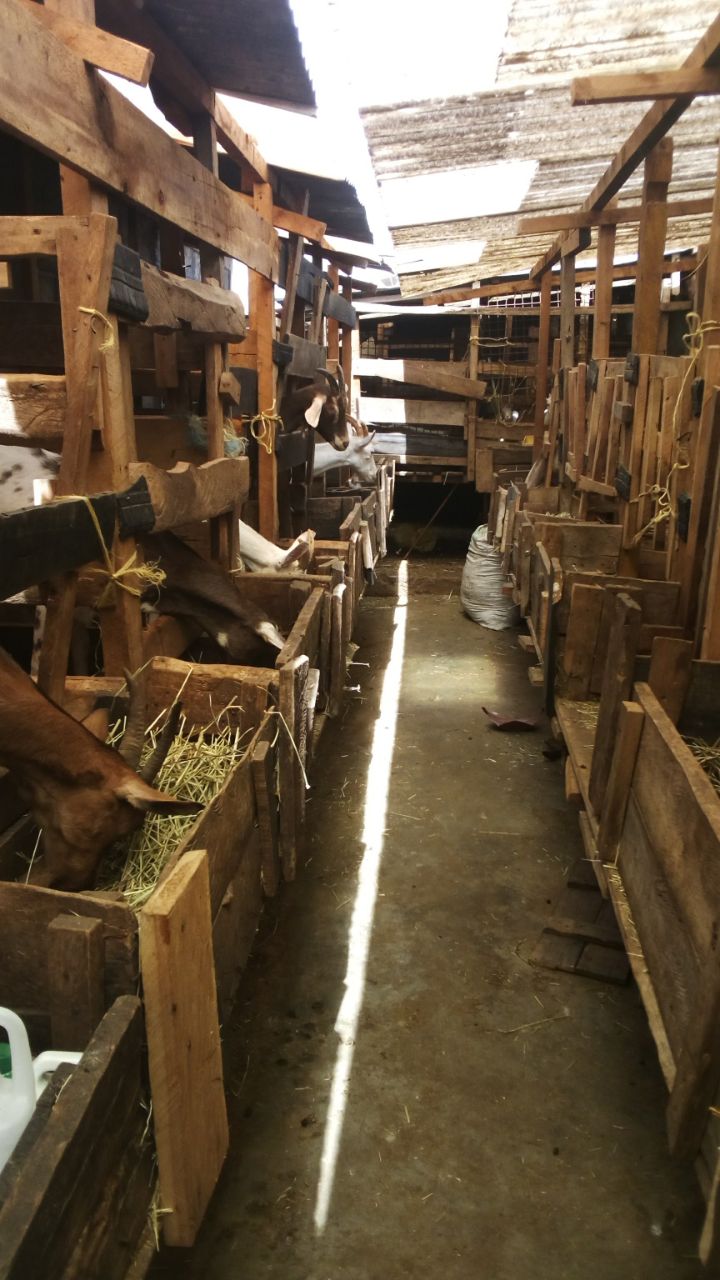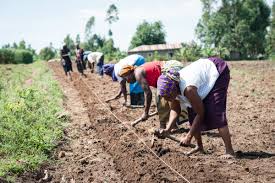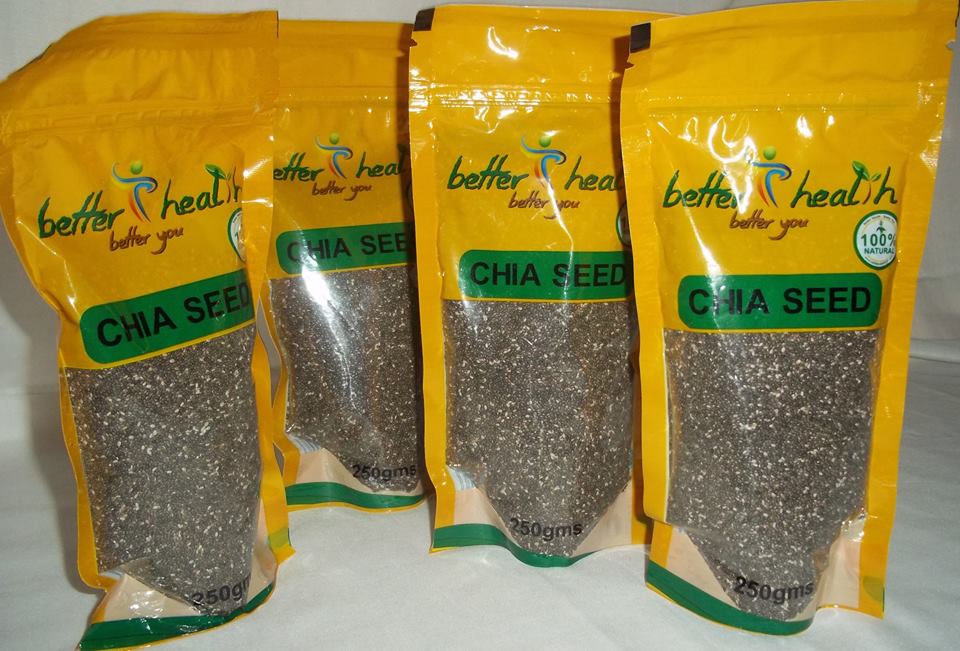 Maryline's goats' cage. He has 50 goats milking ten of them getting 15litres a day. Goats' milk has iron, calcium, magnesium and phosphorous are more easily digested and used by the body in goat milk than cow milk. Photo courtesy.
Maryline's goats' cage. He has 50 goats milking ten of them getting 15litres a day. Goats' milk has iron, calcium, magnesium and phosphorous are more easily digested and used by the body in goat milk than cow milk. Photo courtesy.
In 2013 Maryline Chepng’eno learned about dairy goat rearing and the nutritious goat milk from an Agricultural Society of Kenya show she attended with her husband. This would be the genesis of starting the venture which has since helped her reduce her daily expenditure on the dairy product from about Sh70 to almost nil.
The 39-year-old counsellor-cum-farmer is now pocketing up to Sh3,000 per day from goat milk and yoghurt sales a venture she just started to improve her children’s nutrition.
“Rearing goats was not a choice but an only option of getting milk for our children as our dream was once we got fairly stable financially we would venture into dairy cows,” said Chepng’eno.
RELATED ARTICLE: Former driver becomes award winning dairy goat farmer
Health experts assert that nutrients such as iron, calcium, magnesium and phosphorous are more easily digested and used by the body in goat milk than cow milk.
To start off, the couple decided to buy their first two Saanen dairy goats breed at Kibwezi in Makueni County each coasting Sh15,000 to rear within their 60 by 100 metres piece of plot at Syokimau, Machakos County.
RELATED ARTICLE: Rearing five dairy goats is 45 per cent more profitable than a dairy cow
After two months, the two goats could give her 3-4 litres of milk a day which were more than enough for her family forcing her to give some to her neighbours for free and then sell some to other people who regularly came looking for a few litres to buy.
“I used to give some of the milk to my neighbours but could sell to those who were daily looking for some litres to buy,” said Chepng’eno.
Beginning 2015, she added two more Saanen dairy goats at Sh15,000 each which were lactating increasing her milk produce to more than five litres a day. This earned her more customers who were coming daily for the milk.
RELATED ARTICLE: Small-holder dairy goat farmers to feed Djibouti market
Rearing goats for milk requires low maintenance and attention as compared to poultry farming. A goat’s feed comprises 3.5 per cent of dry matter. Therefore if well-fed and watered, goats rarely fall prey to diseases making the ventures profitable.
“At Syokimau, there are neighbouring spaces where I let the goats graze for free limiting my expenditure on feeds,” said Chepng’eno.
In October, the same year (2015) they visited Nairobi International Trade Fair for more insights in dairy goat rearing. They then bought another two German Alpine dairy goats breed at Sh30,000 which they could crossbreed with the Saanen breed bought earlier.
RELATED ARTICLE: Free-range dairy goat earns farmer over Sh90,000 a year
Beginning 2016, the young farmer had six lactating goats and six kids by the earlier bought breeds. This tripled her milk output prompting her to start making yoghurt for sale.
Her goats have since multiplied to 50 goats currently in total in her locally constructed cage. She milks 10 of them which give over 15 litres a day.
“Currently I am milking about ten goats, each in different lactation period, some are drying up, others on their mid-lactation and the rest just gave birth,” said Chepng’eno.
RELATED ARTICLE: Dairy goat farm changing farmers’ lives through trainings
Owing to its sweetness and nutritious advantage over other milk types, she directly sells a litre of fresh raw and pasteurized goat milk at Sh250 to her ever-growing and consistent customers.
On a good day, her small farm generates Sh3,000 from sales of milk and all the products.
Chepng’eno has since left most of the contracts she was engaged in to be close to the goats and get enough time to process their products.
Write comment (2 Comments)




 Packed chia seeds ready for market. According to dealers in the crop, its seeds are in high demand in both local and international markets hence increased need for growers. Photo courtesy.
Packed chia seeds ready for market. According to dealers in the crop, its seeds are in high demand in both local and international markets hence increased need for growers. Photo courtesy.










